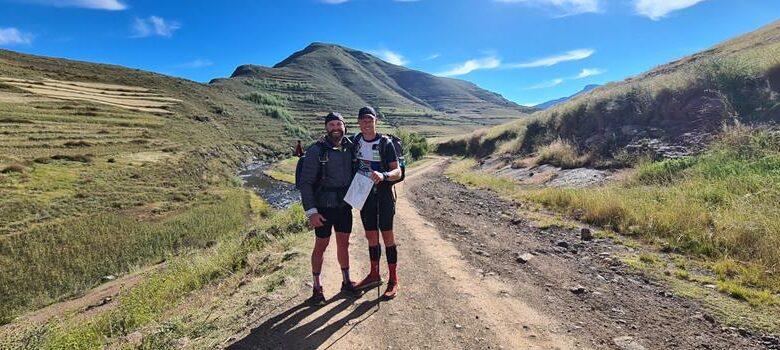Africa-Press – Lesotho. Six days, 500 kilometres, 125 hours, and 12 hours of sleep; that is Expedition Africa Lesotho 2022 condensed into one sentence. That is, for the Slowvelders, at least.
They are a team of adventure racers from the Lowveld who competed together for the first time in November last year. The team consists of Megan Andersen, Stephan Pinker, Harry Wiltshire and Wihan Jacobs. Adventure racing entails travelling a certain distance, consisting of various different legs, within a certain amount of time.
Which in itself does not sound too challenging, until you realise the different legs consist of mountain biking, trekking, kayaking and some swimming in ice-cold temperatures and up and down never-ending mountains in rural Lesotho.
The first leg was a bit of a cultural experience, with each team getting a donkey to walk for about the first hour. The team laughed, saying they ended up with the most stubborn one.
With the second leg, the potential for physical exertion turned up a few notches. They navigated down into the gorge of a 200m waterfall. From there they had various checkpoints going down a river.
It was raining, and then it got dark, and then it got cold, and it continued raining, and then it was raining, and we were walking, and we were walking,” the team mentioned.
When the route was initially planned, they would have been right at the river’s edge, but due to it being in full flood, that was not possible and alternatives had to be found.
Later on in the race, the circumstance created by the weather would also force them and numerous other teams to skip a checkpoint in order to finish in time.
This was decided when organisers saw that even the leading team were about 30% behind the estimated time. The mountain biking they compared to being on the seat of a bicycle for as long as a trip to Cape Town and back would take you.
Add to that unfavourable weather and you have more than a simple challenge. Some of the inclines were so steep, they simply could not justify burning that amount of energy on riding it out and opted to push the bikes instead.
During this leg, the team also had to cross a river again at some stage. They did this by paying locals nearby who had boats. During these races, it is all about making do with what you have. On the other side of the river, trouble was waiting for them.
Andersen and Pinker were slightly ahead, when suddenly they heard Jacobs whistling and yelling, “Julle moet kom, Harry het neergebliksem!” He had gone over a rutty piece in the road with his bike and ended up falling into a ditch next to the road caused by the rain.
He had hit his head, and hurt his wrist, arm and leg. The team had to make a decision: Do they stop the race completely, or get Wiltshire the help he needed and continue without him? They decided to go on ahead; Wiltshire said he would not have wanted it any other way.
From there, the remaining three still had kayaking, swimming and trekking the final stretch towards the Afriski Resort to go. The kayaks were two-seaters, which meant they ended up paddling two in front and one, in tow, in the back.
Jacobs had the honour of swimming to one of the control points in 10°C, leading to uncontrollable shivers when he met back up with Pinker and Andersen.
They had to work together to get his body temperature back up to where he could function and continue further. Jacobs remembered an instance later in the race when he wanted to eat a chocolate he had in his bag; it was frozen – that was how cold it was.
“Luckily Megan had a naartjie. It was the best naartjie I had in my life. ” They said at a certain stage in the race “time becomes irrelevant, distance becomes irrelevant.
The fact that you have to climb mountain after mountain becomes irrelevant, you just know that you are still moving and you are going to be moving. ” The day they would reach the resort was the first with an end destination in sight. Despite the beatings on mind and body, the experience itself was entirely worth it, they all agreed.
“For six days you forget about everything; you forget about home, you forget work, you forget about cellphones, you give up everything and your whole world becomes this survival mode you are in and it is the most refreshing cleansing of all the daily noise.
The also reckon the experience brings them closer to God and makes them better people in general once they get back in the “real” world – despite the sometimes two-week recovery period and a few missing toenails after a race.
For More News And Analysis About Lesotho Follow Africa-Press






